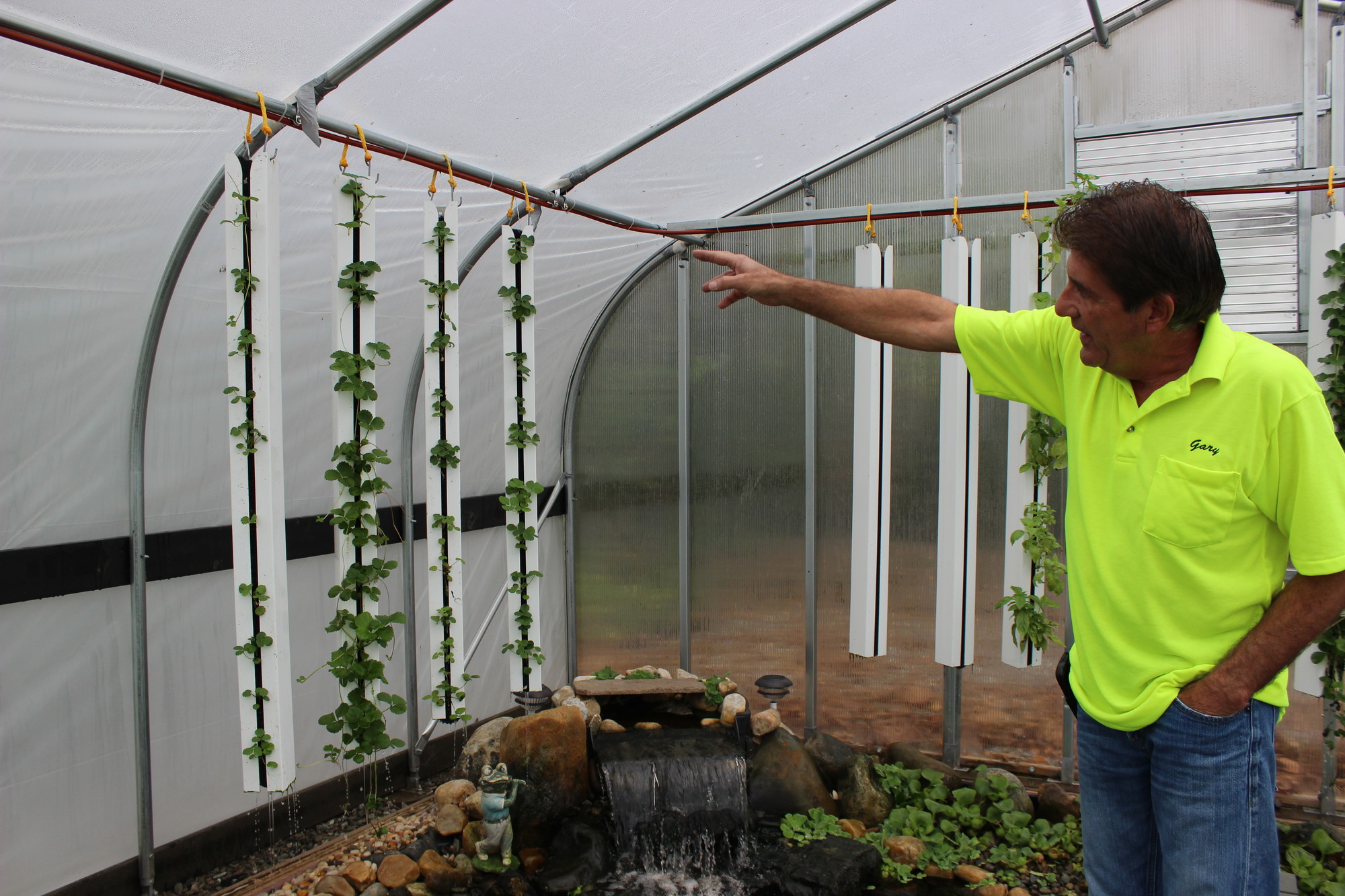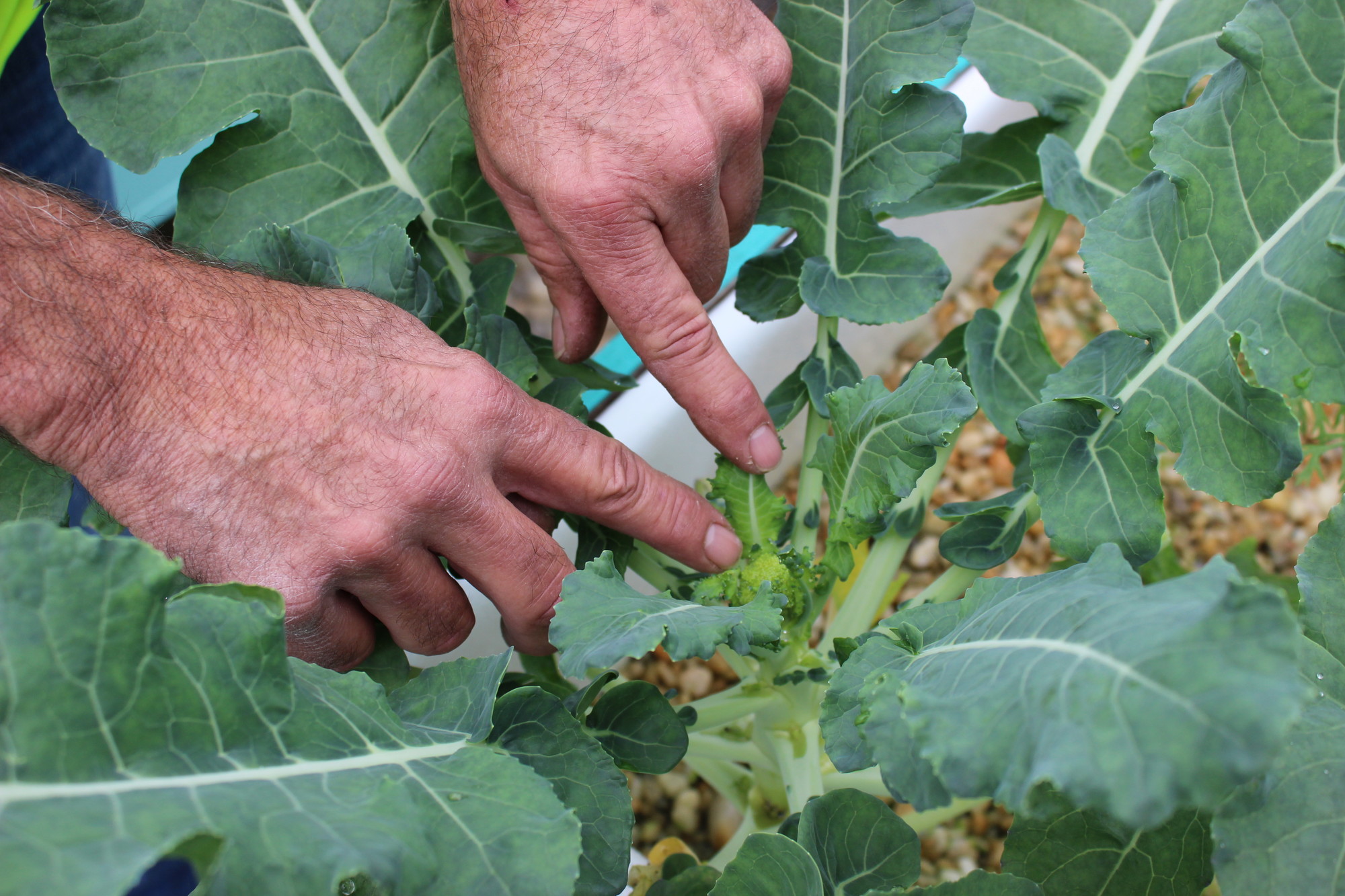Combating the wasting of natural resources
Lawrence resident Gary Caparelli creates purifying aquaponics project
To combat the wasting of water and help conserve natural resources, lifelong Lawrence resident Gary Caparelli, who first learned of aquaponics more than 15 years ago, has built such a system on his property.
Aquaponics is system in which waste created by farmed fish or other aquatic animals supplies nutrients for plants grown in water as opposed to soil, which in turn purifies the water.
“In the late ’90s, I came upon aquaponics,” he said. “I had found what I was looking for and never looked back. Construction and water is my life. I love to build, especially things that involve water.”
He built a structure to house the plants that includes a pond and pipes that carry the water from the collection reservoir to the pond. Caparelli has spent his entire working career in construction, specifically the irrigation business, installing many systems for homeowners in the Five Towns.
“I have witnessed the sheer waste of water runoff and chemical pesticides, herbicides and fertilizer pollution that results from trying to grow nice things in an unnatural, or chemical, environment,” he said. “There must be a better way.”
“When he started talking about and planning this project, I wasn’t sure how it was going to turn out,” he said. “Now that it’s up and running, it seems to be doing well. I think we’ll get through the winter.” One unknown is how the fish in the pond will fare in colder temperatures.
At the Hewlett-Woodmere School District, Dr. Brian Terry, chairman of the science department, said they are very interested in visiting Caparelli’s project.
“Our middle school is currently developing an Outdoor Environmental Center (OEC), and setting up a small scale aquaponic/hydroponic system in our newly completed greenhouse within our OEC,” Terry said. “Our prior knowledge of aquaponics was somewhat limited, but we have been learning.”
The concepts associated with aquaponics can be found at every level of the current New York State Science Standards and the Next Generation Science Standards (NGSS), according to Terry. “New York State is currently reviewing their current science standards with the Next Generation Science Standards for a possible Jan. 2016 release of a New York State version of the NGSS,” he said.
Caparelli thinks that learning about aquaponics extends even beyond the sciences. “Students will benefit from this hands-on experience, which complements various academic studies such as biology, chemistry and ecology,” he said. “A business model might also be included as the traditional bake sales are replaced with organic produce sales as a source of fundraising.”
Terry added that students benefit from learning about aquaponics since it is about recycling materials from the environment. “We need to educate our students for a sustainable future since we have limited resources on our planet,” he said.

 47.0°,
Mostly Cloudy
47.0°,
Mostly Cloudy 







